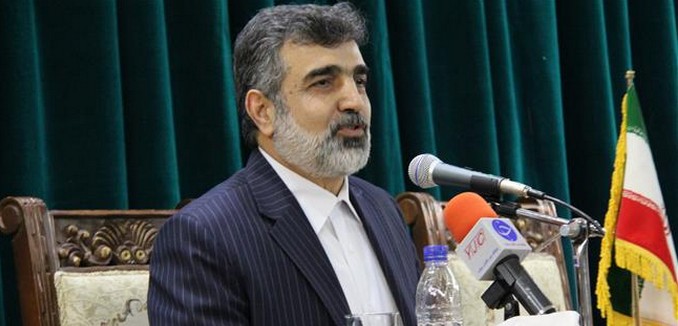Just a week after Iran’s foreign minister boasted of a previously secret document detailing Iran’s plan to restore its full uranium enrichment capacity on year 10 of the nuclear deal, a spokesman for the Atomic Energy Organization of Iran (AEOI) said that his country would officially protest the leak to the International Atomic Energy Agency (IAEA), the Iranian news agency Mehr reported Monday.
“When a part of these documents and information is leaked, the question to ask is who and for what reason has done it,” AEOI spokesman Behrouz Kamalvandi said. “As of now, our suspicions point to the IAEA and the people there who have access to these documents.”
“Some believe that in the process of the nuclear deal, the American and European governments have lost to Iran,” Kamalvandi added. “And to prove this, [they] have attempted to obtain documents to say that Iran will increase its capacities after ten years following the [deal] and in the 15th year, the country will practically reach a high industrial capacity.”
The knowledge that Iran would be able to use faster centrifuges at the tail end of the nuclear deal has been known for a while. The Institute for Science and International Security used that assumption in calculating that Iran’s “breakout time” to nuclear weapons capability would be as short as three months by the end of the 15-year deal, down from an estimated seven to thirteen months during the first ten years of the deal.
Nonetheless Kamalvandi stated that Iran would file a note of protest with the IAEA, even though the information in the document reflects “a matter of pride for our country and reveal our achievements.”
Iranian Foreign Minister Mohammed Javad Zarif, who also served as Iran’s chief nuclear negotiator, did not appear to be bothered by the leak of the document last week. In fact, he boasted that the document showed that Iran would be able to restore its full uranium enrichment program by the end of the deal.
Nuclear proliferation expert Emily Landau of Israel’s Institute for National Security Studies acknowledged that there was nothing new in the document, but raised concerns that the document legitimized Iran’s nuclear enrichment program.
[Photo: PressTV ]




